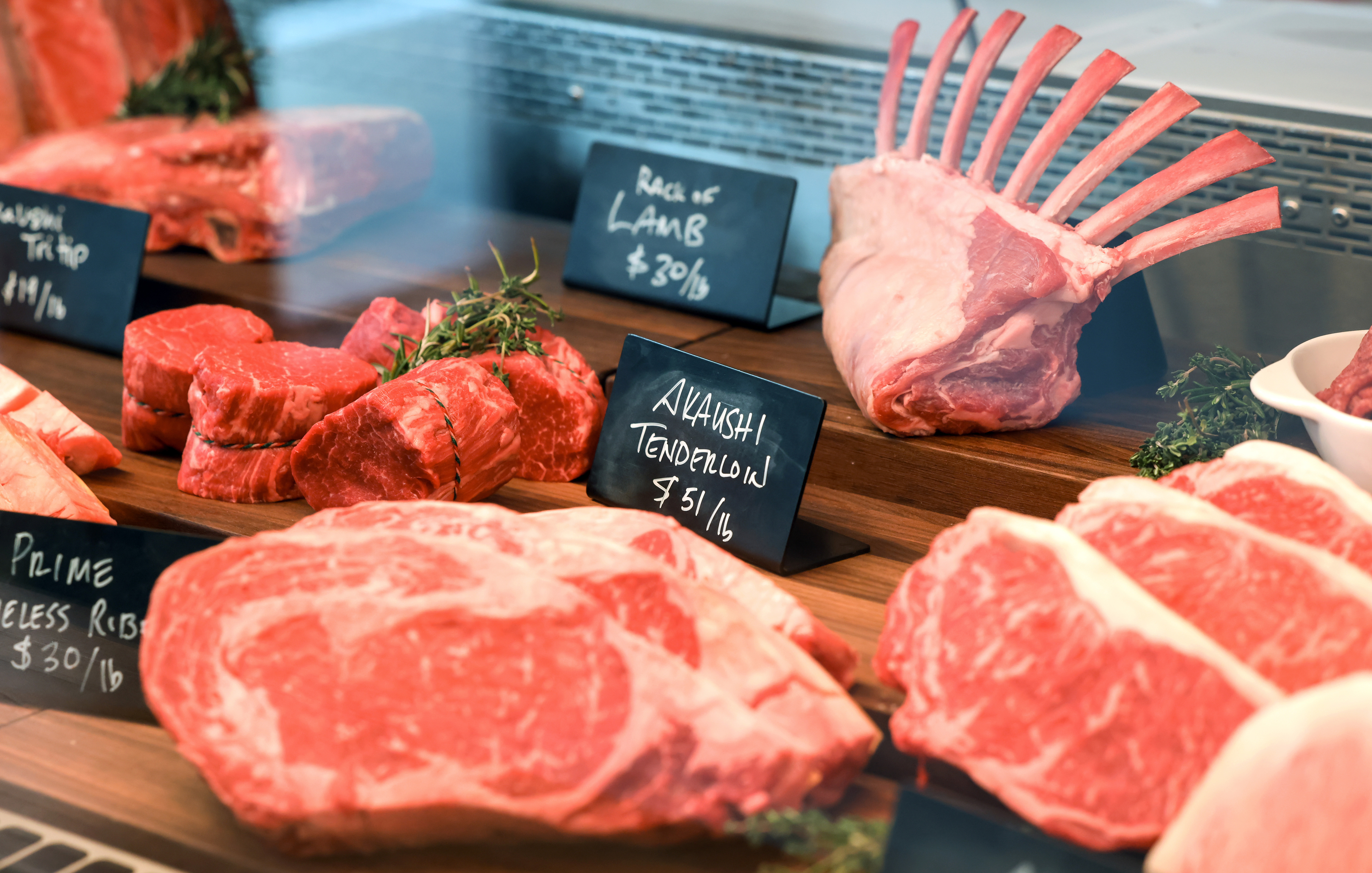Bagley Meat Market Edwardsville IL – Where Quality Meets Freshness in Every Cut
Bagley Meat Market Edwardsville IL – Where Quality Meets Freshness in Every Cut
Blog Article
Why Purchasing at a Regional Meat Market Guarantees Fresh, High-Quality Cuts
Buying at a local meat market uses distinct advantages that usually go undetected by customers accustomed to larger retail chains. These markets offer direct accessibility to fresh, high-quality cuts, an outcome of minimized transportation time from farm to counter. This not just improves flavor however also supports local farmers, promoting community connections and lasting methods. Extensive top quality control measures guarantee that each acquisition satisfies high criteria of safety and freshness. Yet, the implications of picking regional extend past instant advantages, prompting a more detailed assessment of what this selection absolutely means for both customers and the regional economic situation.
Advantages of Neighborhood Sourcing
In the realm of food purchase, the benefits of local sourcing stand out plainly. By purchasing meat from regional markets, consumers gain straight accessibility to items that are commonly fresher and a lot more flavorful than those located in bigger, commercial grocery stores. Regional sourcing reduces the time and range food travels from ranch to table, which not just enhances taste but additionally preserves nutritional value.

In addition, regional sourcing often offers transparency concerning the beginnings of the meat. Customers can inquire about the farming techniques utilized, pet well-being criteria, and whether the meat is grass-fed or organic. This information empowers consumers to make informed decisions aligned with their values.
High Quality Control Requirements
Local meat markets frequently stick to strenuous quality assurance standards that make sure the items supplied satisfy high security and quality standards. These criteria normally include various phases of the meat production process, from sourcing to managing and storage.
First, local markets usually develop rigorous vendor criteria, making certain that only reputable farms and manufacturers are made use of - bagley meat market edwardsville il. This decreases the likelihood of contamination and promotes higher pet welfare criteria. Furthermore, many regional meat markets implement normal evaluations to validate that the meat is processed under sanitary conditions, better reducing wellness risks
Temperature level control is one more essential element of quality assurance. Local meat markets frequently keep an eye on refrigeration systems to keep optimal storage space temperature levels, ensuring that meat remains risk-free and fresh for intake. Moreover, the implementation of traceability systems permits markets to track the origin of their products, giving transparency and accountability.
Lastly, staff at regional meat markets are usually trained to identify indications of putridity and recognize correct handling techniques. This commitment to quality assurance not only raises the general requirement of the meat yet also cultivates consumer count on, making regional meat markets a trustworthy source for premium cuts.
Sustaining Regional Farmers
Sustaining regional farmers is essential for promoting a sustainable food system and boosting community resilience. They straight add to the source of incomes of farmers in their region when customers select to shop at neighborhood meat markets. This not just supports the local economic climate yet additionally reinforces the agricultural sector, making certain that it continues to be viable and lively.


In addition, sustaining local farmers promotes a sense of area and connection between producers and customers. It urges openness in food sourcing and instills trust fund, as clients can create relationships with the people that elevate their food. This straight link ultimately results in a more engaged and notified public, which is critical for supporting for sustainable agricultural techniques in the future.
Lasting Practices
Sustainable practices in meat markets play a vital duty in advertising environmental stewardship and making certain pet welfare. Neighborhood meat markets often focus on sourcing their products from ranches that implement lasting and moral farming methods. These practices consist of rotational grazing, which assists keep dirt health and wellness and minimizes carbon exhausts, together with decreasing the usage of anti-biotics and hormonal agents in livestock.
Furthermore, regional meat markets generally highlight transparency in their supply chains. Clients are provided with details pertaining to the origin of their meat, enabling them to make educated selections that straighten with their values. By supporting neighborhood farmers who practice lasting approaches, consumers contribute to the preservation of biodiversity and the decrease of transportation exhausts related to long-distance meat circulation.
In addition, many neighborhood meat markets participate in waste reduction techniques, such as making use of every part of the animal and promoting off-cuts that might or else go unsold. By cultivating a much more sustainable approach to meat usage, these markets not only offer top quality items but likewise contribute positively to the environment and pet welfare. In essence, buying at a regional meat market lines up consumers with a more comprehensive activity in the direction of honest and responsible food sourcing.
Customized Client Service
Shopping at a meat market usually encompasses even more than simply the products used; it is likewise concerning the experience and the relationships developed in between consumers and staff. Individualized customer support is a hallmark of neighborhood meat markets, setting them in addition to larger grocery store chains. Educated staff make the effort to comprehend individual customer choices, guaranteeing that each visit is tailored to specific requirements.
Customers benefit from professional guidance on cuts, cooking techniques, and preparation ideas, fostering a feeling of trust and loyalty. This customized communication enables clients to ask find more information questions and look for referrals, bring about notified investing in decisions. Staff participants frequently remember normal consumers and their preferences, developing a welcoming environment that cultivates area connections.
Furthermore, individualized service reaches unique demands, such as custom cuts or particular prep work methods, which bigger stores may not suit. This degree of attention strengthens the commitment of local meat markets to top quality and customer contentment.
Fundamentally, individualized client service not only improves the purchasing experience but additionally ensures that clients entrust to the very best products fit to their culinary requirements, making every check out a rewarding one.
Conclusion
To conclude, purchasing at a regional meat market supplies many advantages, including premium quality and quality due to decreased traveling times. Rigid quality assurance measures enhance transparency and ensure high requirements for items. Supporting neighborhood farmers fosters neighborhood connections and strengthens the local economy, while sustainable practices add to ecological stewardship. Additionally, personalized customer care enhances the shopping experience, making neighborhood meat markets a recommended selection for customers seeking both top quality and ethical factors to consider in their food sourcing.
The implications of picking local prolong beyond immediate benefits, motivating a better assessment of what this choice absolutely means for both consumers and the regional economic climate.
Supporting regional meat markets additionally adds to the neighborhood economic climate. Neighborhood meat markets frequently keep an eye on refrigeration systems to keep see this website ideal storage space temperatures, making certain that meat continues to be fresh and risk-free for consumption.Neighborhood farmers are commonly much more attuned to the particular demands of their neighborhoods, growing plants and elevating animals that line up with local preferences and preferences. Supporting neighborhood farmers promotes area relationships and reinforces the local economy, while lasting practices add to environmental stewardship.
Report this page